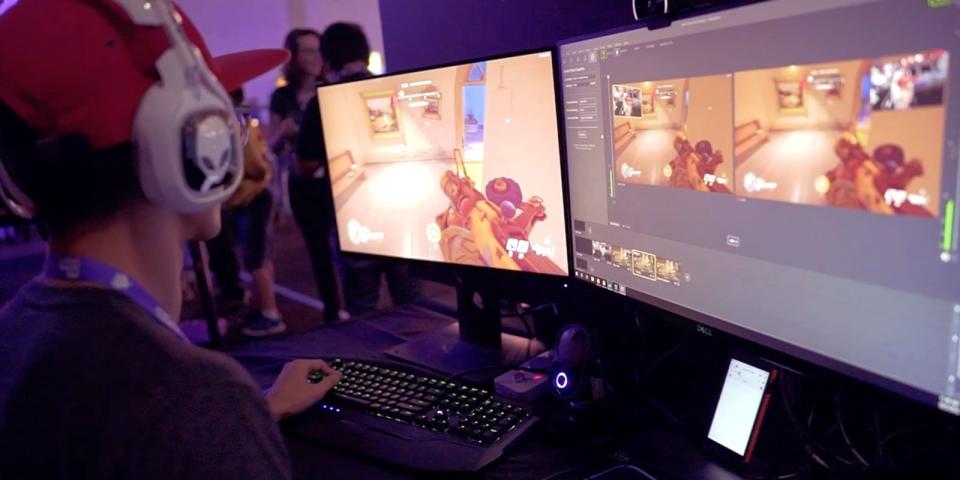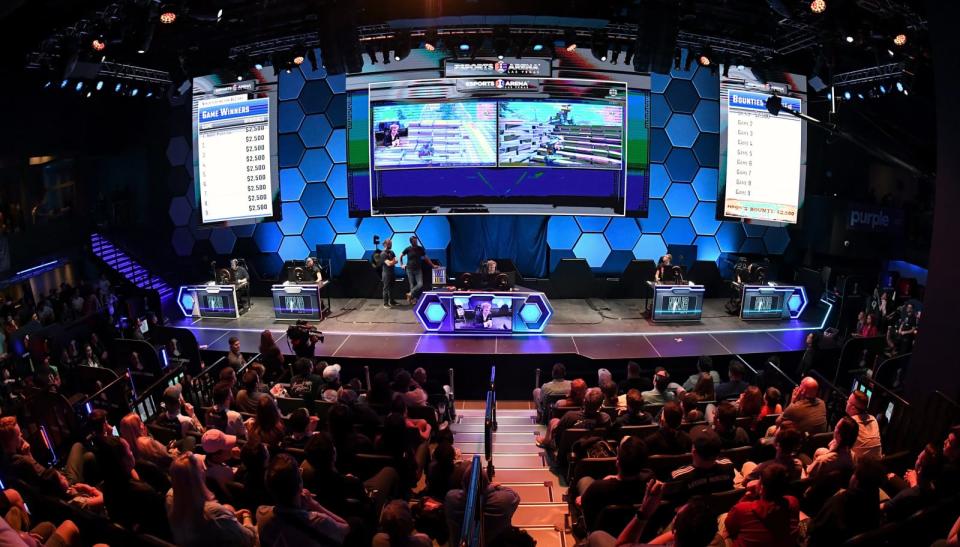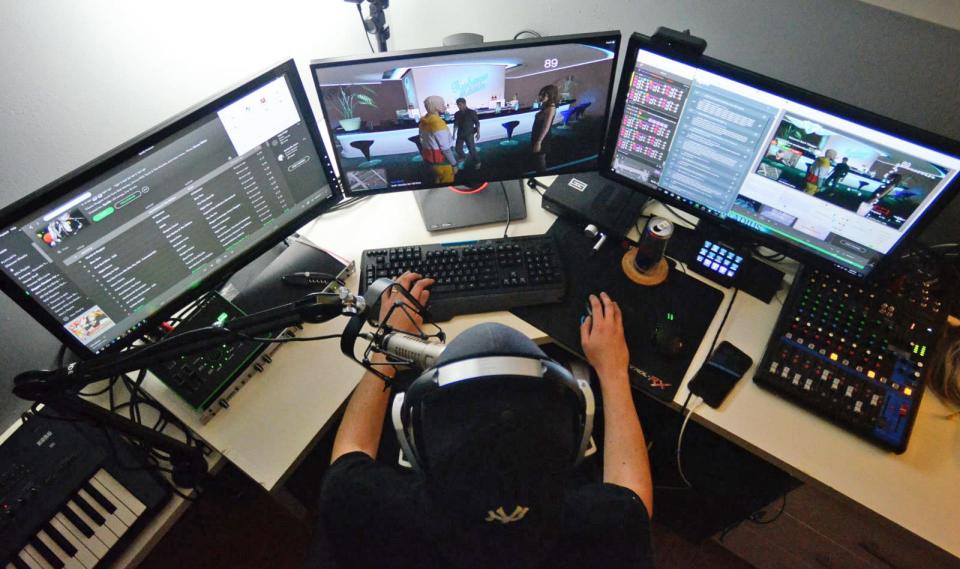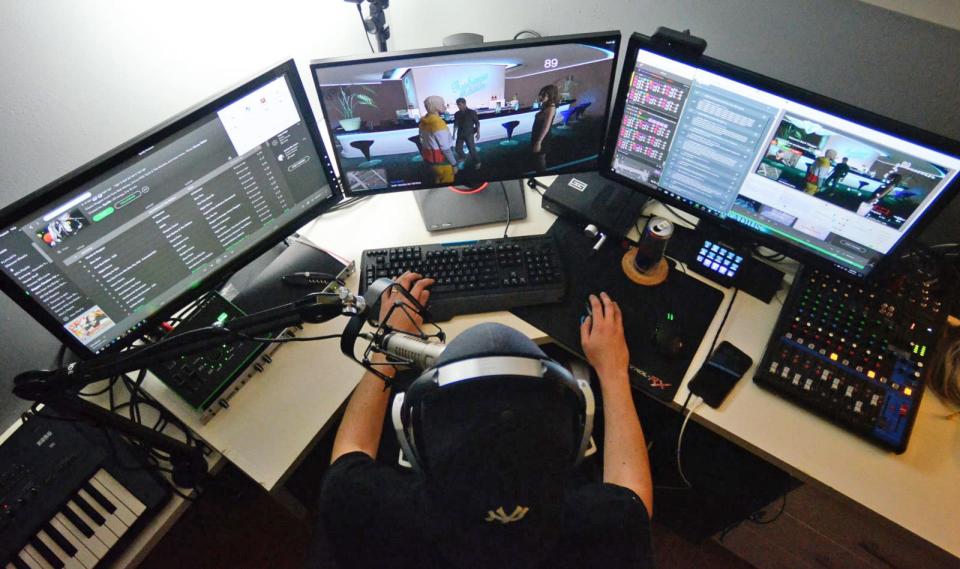All the gear you need to build a game-streaming empire
One emote at a time.
You've been watching Tfue, AnneMunition, Ninja and Pokimane, studying their habits and on-air setups -- cameras on faces and keyboards, friendly borders around ad boxes, quality lighting, quirky banter, and plenty of reminders to donate, donate, donate. You've played Fortnite and League of Legends every day for the past month. Mentally, you're ready to go live on your streaming channel. Now it's time to get your gear in order.
Streaming is not only about playing games in front of a live audience but also showcasing your personality, connecting with the chat and making viewers feel like they're in the room with you, hanging out with a friend. The wrong equipment can get in the way of this immersion, but the right setup can keep people watching for hours.
When it comes to streaming hardware, there are two main areas to consider: how you look and how you sound. Let's start with the visual.

Lighting
People want to see your face while you're playing games; it's as simple as that. However, you don't want to look blown out, shiny or covered in shadows, and proper lighting is the solution.
Ring lights work well for showing off new gadgets or your favorite beauty vlogger's nonexistent pores, but for streaming (or anyone with glasses), they can be a bit harsh. Ideally, a streamer wants clean, even lighting, and for that, you need softboxes with LED bulbs. Softboxes provide diffuse light while LEDs don't run as hot as other bulbs, keeping you cool while you entertain the remote emote audience.
%Ad-1%
If you have the floor space, the Neewer lighting kit has all the necessary pieces for $100, including two softboxes (20 x 27 inches) with dimmable LEDs, two stands, power adapters and a carrying case. General wisdom is to place the softboxes at 45-degree angles on either side of your streaming space, eliminating shadows and evenly lighting your green screen, if you choose to use one. Of course, every lighting situation is different, so feel free to play with angles and warmth to find that perfect kill-streak glow.
Maybe your dorm room doesn't have enough square footage for a hot plate and standing softboxes. In that case, a dimmable LED panel should work fine. The VILTROX L116T LED panel is affordable ($32) and effective, especially in a controlled environment. It has diffuse, dimmable light, and the whole thing measures just 20 x 13 x 3 centimeters. You'll have to supply the AC power adapter or lithium battery though.

Camera
Streaming has joined the rest of the technology industry in the 4K era, and that means a professional-looking stream requires something more than your built-in webcam. If you're serious about the streaming and vlogging business, look no further than the Sony a7 III, the best full-frame mirrorless camera that $1,998 can buy. The A7 III shoots video in 4K, and it's what all the top YouTube creators are using today.
If you want to stream in 4K for less cash, the Sony Alpha a6500 is just over $1,098. The major benefit in buying a 4K camera for streaming comes in scalability: These are ideal for shooting YouTube videos and other edited content once your Twitch channel takes off. However, it's perfectly valid to start your streaming career with a 1080p webcam like Logitech's C920S ($65). Many streamers get their start with this little beauty and then upgrade to 4K once the subscribers start flowing.
Another advantage of the C920 is its built-in ability to go live -- something that Sony's 4K offerings can't do on their own. Luckily, there's a dongle for that.
%Ad-2%
Once you have the camera, make it a streaming machine with the Elgato Cam Link 4K. It's a $118 dongle that connects compatible cameras to your PC and allows you to go live. Most of Sony's wares are on the compatibility list, along with models from GoPro, Panasonic and other major manufacturers.
Visual appeal is half the battle. The second half is all about how you sound, and for that, you'll need a quality mic.

Mic
For the best audio quality, you'll need a standalone microphone that captures your voice while minimizing background noise. Microphones generally come in two flavors, dynamic and condenser. Dynamic mics are rugged and can handle extremely loud sounds with ease while condenser mics are more sensitive and are able to capture higher-quality sounds. For streaming, when you want to eliminate all sounds except your voice, dynamic mics are a safe bet.
The Shure SM7B ($399) is a top dynamic-mic pick for many podcasters and streamers, providing those perfect mouth pops even in the midst of a celebratory scream. Rode also makes a solid dynamic mic with the $220 Procaster.
That said, condenser mics aren't out of the running. It's possible to play with the settings in your streaming software, particularly the noise gate, and get the most out of a mic like the Blue Yeti ($90+), a longstanding classic of streaming and podcasting lore.



